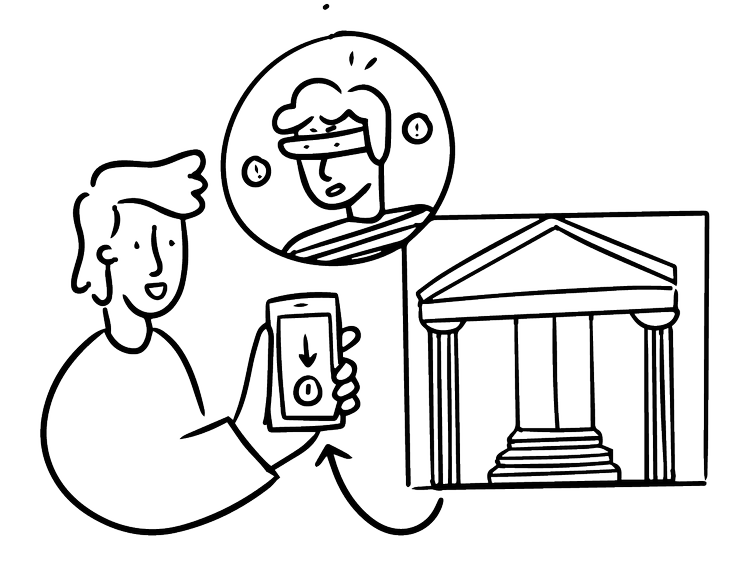Will HSBC refund scammed money?

Fraud victims of the bank often ask us “will HSBC refund scammed money?” The simple answer is maybe but you might have to fight for it. Depending on what happened, you may be able to get your money back where you lost funds to an APP fraud and often it can be a long winded process.
£25m recovered
FundsUnity can help you to get your money back by representing you.
You can find out more in a free fraud victim consultation with FundsUnity. You can also do your case yourself, by following our free fraud reclaim guide.
Will HSBC refund scammed money?
HSBC is one of the largest banks in the world, with a footprint globally. It is one of the biggest banks in the United Kingdom and is regulated by the Financial Conduct Authority.
The fraud figures for each bank have not been published publicly, so there is no exact figure on how many HSBC customers fall victim to fraud or how many are refunded.
However, recent publications from Which? on scams shows that while some banks resolve complaints early, the bank settled a tiny number of complaints early. This means that customers of HSBC who lose money to scams are unlikely to have their cases resolved quickly. Therefore you should be prepared for a long fight to get your money back when you’ve been a victim of a scam.
What is APP fraud?
HSBC customers are losing their funds to authorised push payment fraud, or APP fraud. This is where you send funds from your bank account thinking it is for a legitimate purpose, but it turns out that the person that received the funds is a scammer.
Common types of APP scams include:
We have provided full details of these types of scams on our website, where you can see specific examples of how these scams work. APP scams have grown massively in size in recent years, with fraud losses in 2021 topping £583.2 million in the UK and almost 200,000 cases being recorded. We believe this is probably well below the true figure.
If you lost your funds to a scam from your HSBC account, we could help you to get your money back from your bank. Often when you tell the bank, they will explain why they think you are responsible for the funds that were lost. With HSBC in particular, it has been shown that they only settle a very small amount of complaints up front meaning you are likely to be rejected. But you don’t need to accept that answer, and figures have shown that a very large number of cases refused by their banks have been overturned on appeal. FundsUnity can help to get your money back from the bank if you have been scammed.
BBC One’s Dirty Rotten Scammers recently highlighted a fraud victim who had lost money to a convincing and growing HSBC scam. This was called a ‘spoofing’ scam, where the scammers were able to call from what appeared to be the bank’s phone number. We have a detailed guide on how to protect yourself from impersonation scams here.
The scam starts with a phishing email or a phishing SMS, which is where the scammers send you a message pretending to be a trusted organisation, like the Royal Mail, in order to get your details. In the case highlighted by the BBC, the victim from Sussex received an SMS from O2, their mobile supplier, highlighting that they had not processed their latest bill and to provide her details via the link. Once she completed the information request in the link, the scammers had all the details they needed to convince her they were HSBC.
The scammers called her from HSBC’s fraud team, from the bank’s number and told her that scammers had tried to take out direct debits on her card. They convinced her it was the bank as they had her card number and personal details so it appeared to be the bank. Unfortunately, the scammers use the information they gleaned from the SMS phishing message in order to convince her they were the bank. This is how the scammers usually operate this scam and why it can be so convincing.
The victim was convinced that their money was at risk and that they had to send it to a new safe account in order to prevent it from being stolen. Unfortunately, this was not a safe account but an account controlled by the scammers.
The victim lost their entire life savings. If you have lost money in a similar scam, FundsUnity can help to get your money back from your bank.
HSBC has signed the CRM Code, sometimes called the authorised push payment scam code. This means that HSBC agreed to the higher level of protection for scam victims that the Contingent Reimbursement Model provides as other large banks have.
The CRM Code says that banks should refund fraud victims, unless they provided a thorough and relevant warning which was ignored or if the customer did not have a reasonable basis for belief. Put simply, if the bank didn’t give a really good warning that was relevant to you, or if the scam was convincing, your bank should refund you.
Regardless of whether the contingent reimbursement model applies, HSBC should be protecting scam victims by responding to fraud trends and taking steps to stop fraudulent payments. This includes if you are sending large payments to cryptocurrency wallets in your own name, as the banks have known about this being a big fraud risk for a number of years.
Often, victims may be tricked into sending the money to a cryptocurrency wallet in your own name and then to the scammer. Where that happens, we may still be able to help. Banks like HSBC should have known about this type of scam for a long time, as it has been common for a number of years.
Transfers to cryptocurrency wallets and then to accounts controlled by fraudsters are often investment scams. This is a type of APP fraud that usually involves a third party broker or trader which pretends to trade and shows good results in what are often fake trading platforms.
Fraudsters tricking victims into sending money through cryptocurrency is one of the biggest recent investment fraud trends in the UK, with Action Fraud regularly warning banks and others about the scam risks.
Banks like HSBC should still be protecting customers when they make payments like this into cryptocurrency wallets, and so FundsUnity can still fight the case for you.
Will Barclays refund scammed money?

If you have lost money to APP fraud from your HSBC account, FundsUnity could help you get your money back from your bank and you can fill in our fraud refund claim form for a free consultation. Our fee is 15% plus VAT on anything that we get back, and we don’t charge anything if we are not successful. For larger cases, the fee is subject to a maximum of £10k plus VAT per case.
Remember you don’t need to use a company like FundsUnity, you could work your case yourself for free! If you’d like to get a refund yourself, you can do this by following our bank transfer refund guide.
Customers often ask if they can get money back if they paid by bank transfer, or if they can get money back if they pay by BACS. The answer is yes, victims of scams may be able to get their funds when they paid by either of these methods.

